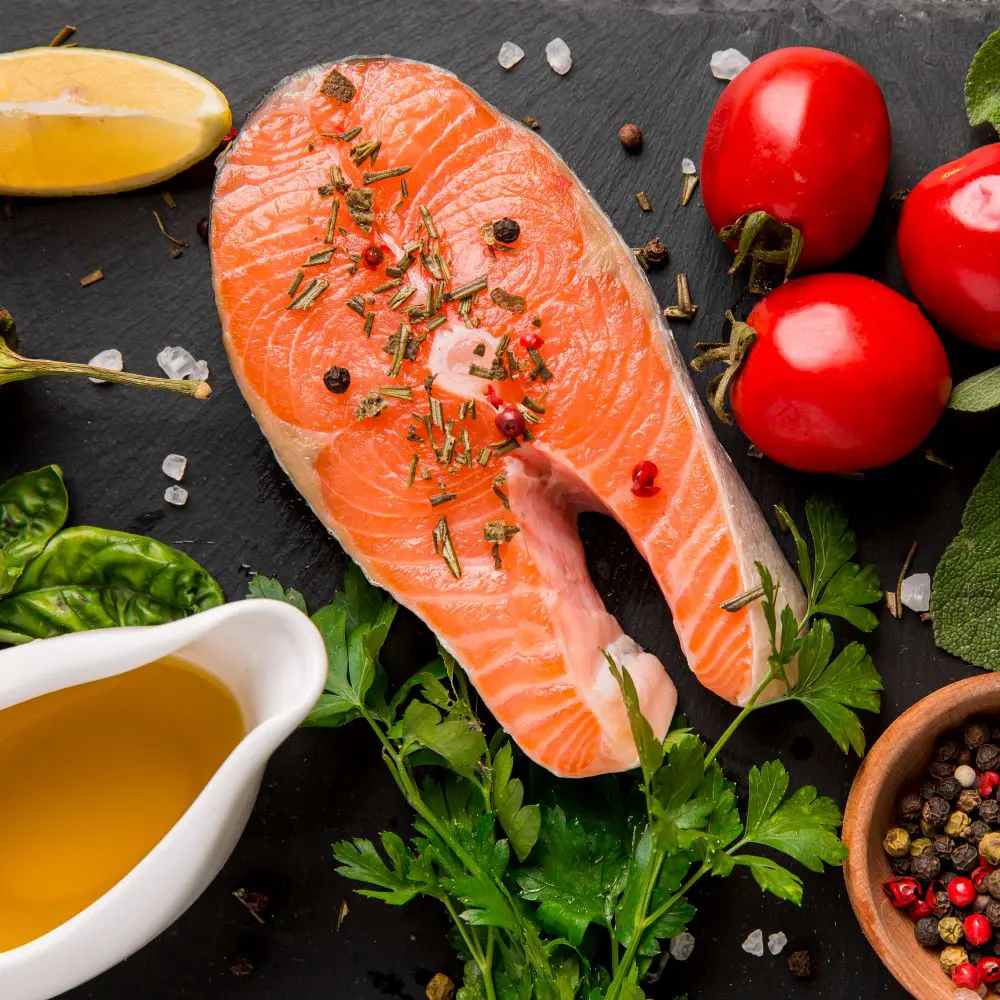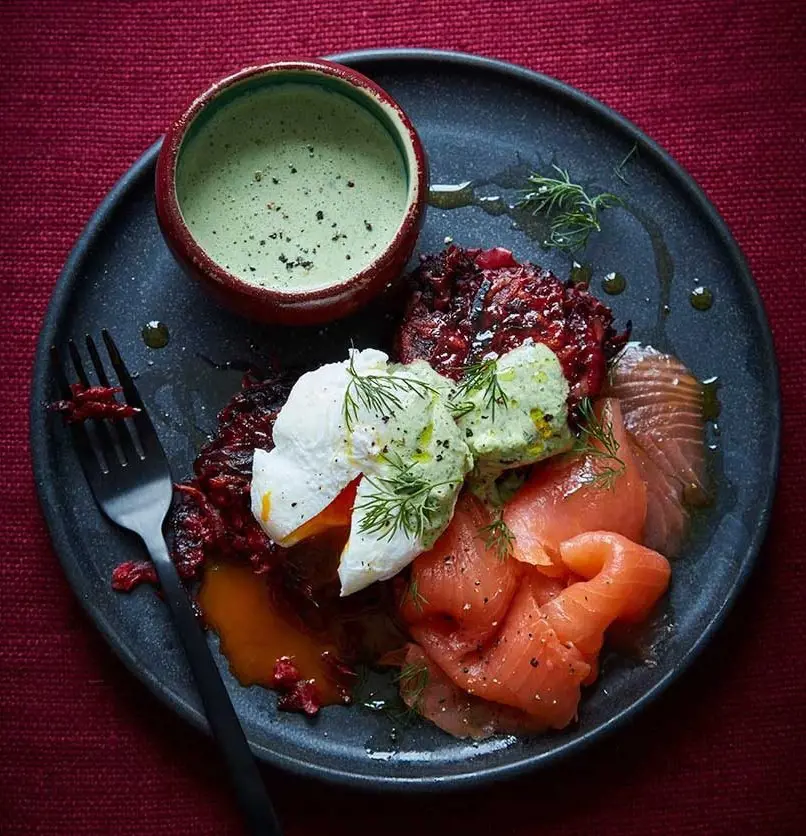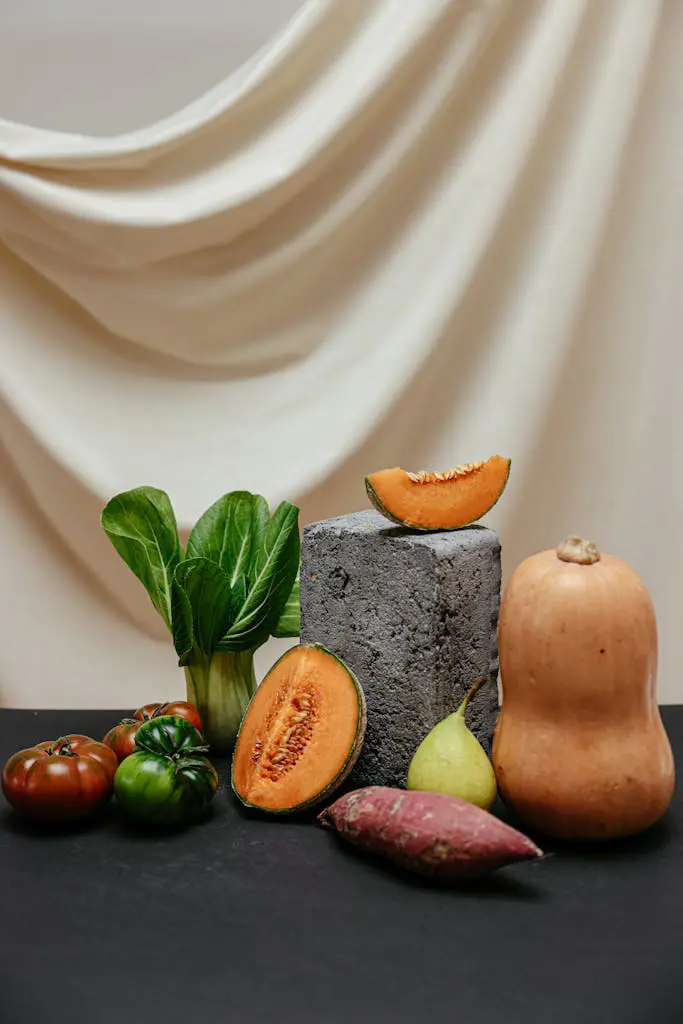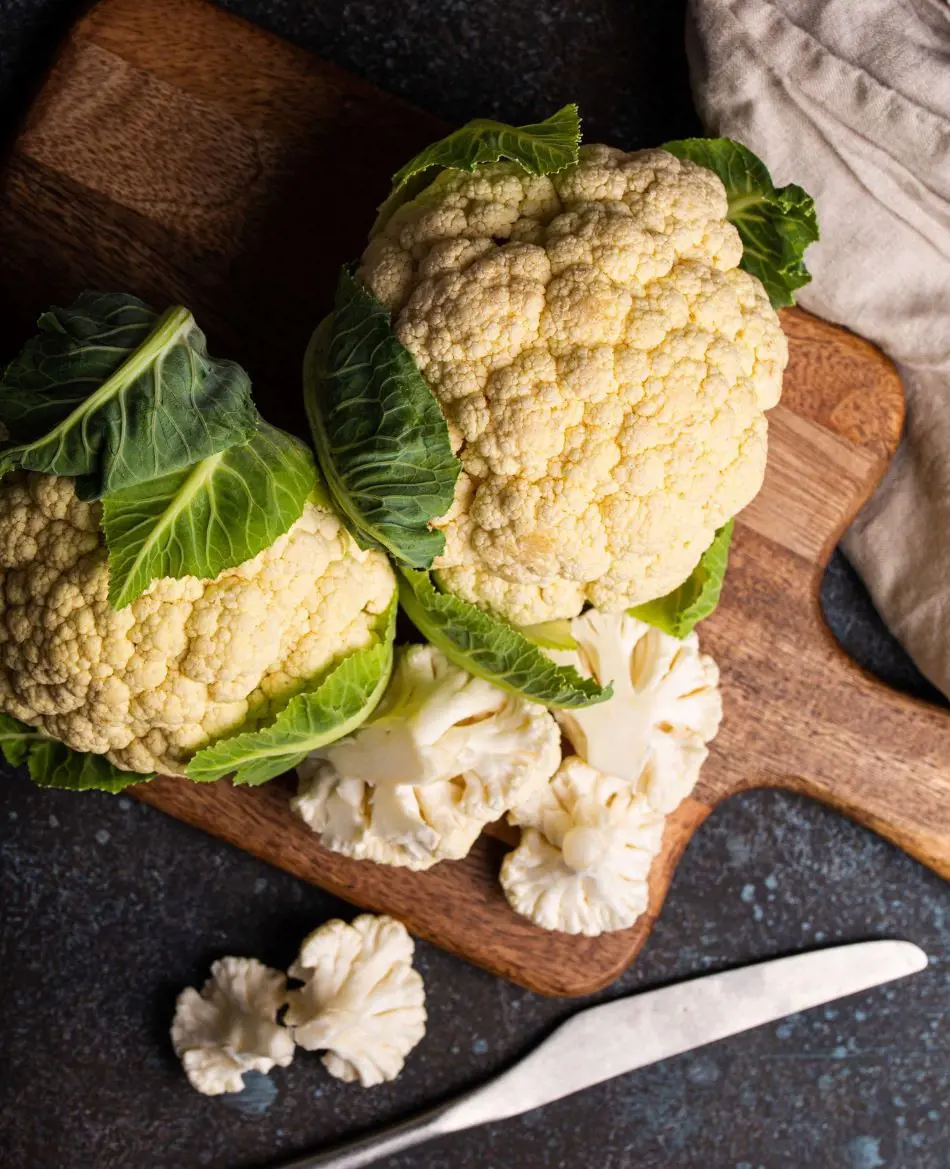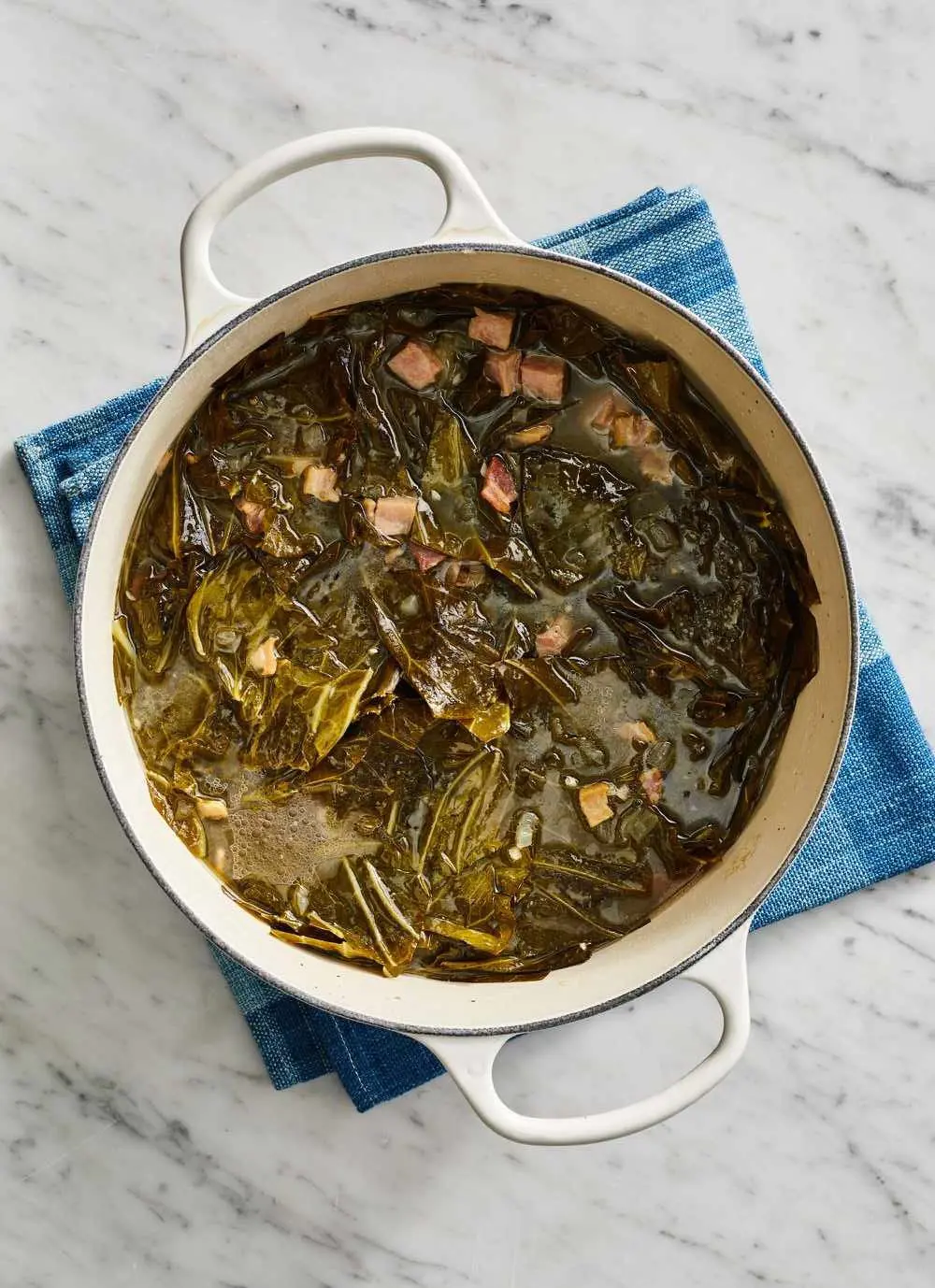20 Foods For Gastritis and What To Avoid
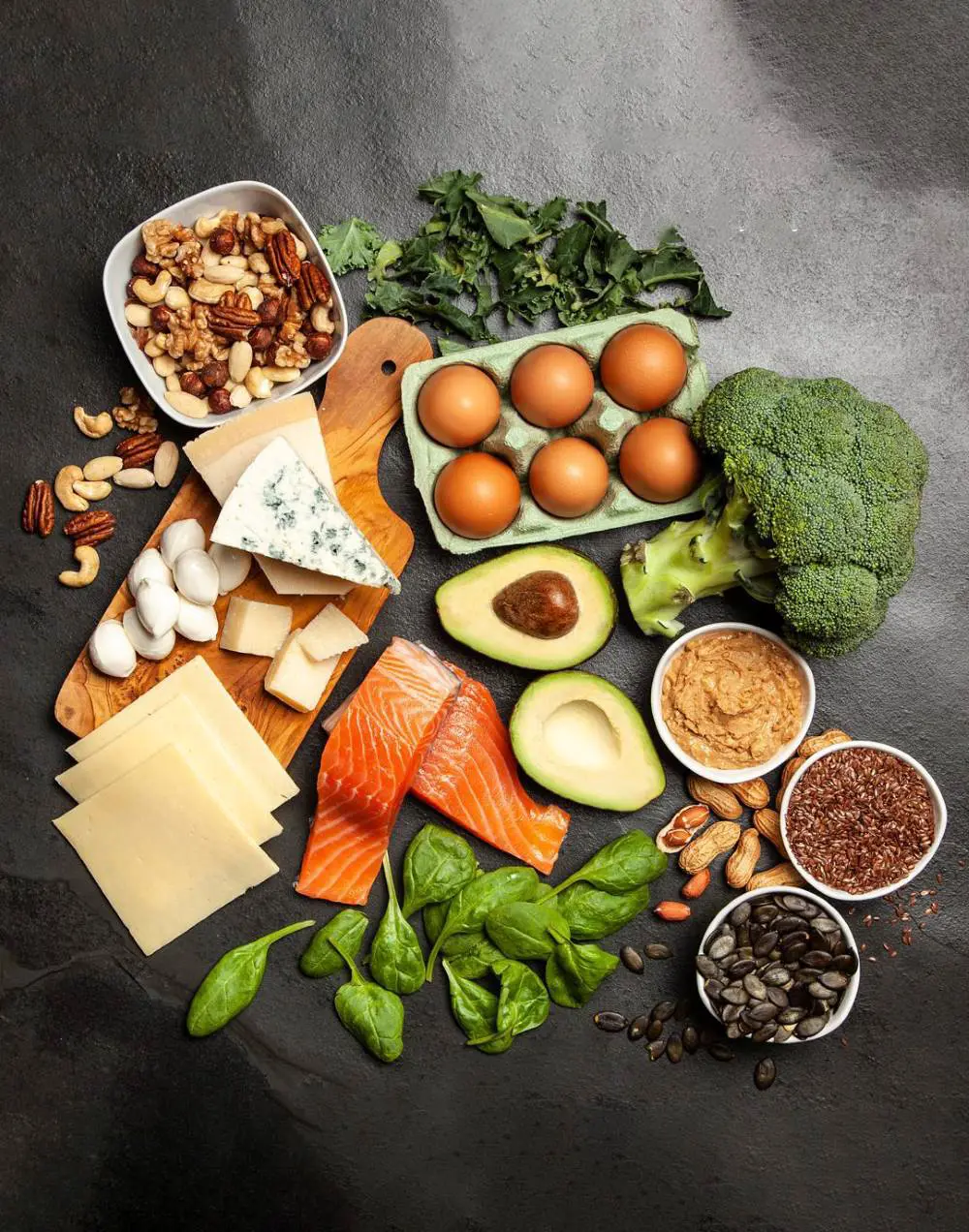
Gastritis is inflammation of the stomach lining that often causes pain, nausea, and indigestion. It can be triggered by factors such as excessive alcohol consumption, stress, certain medications (especially NSAIDs), or infections like Helicobacter pylori.
To manage symptoms, it's important to avoid sweets, spicy and fried foods, and processed meats, as they can irritate the stomach lining. Instead, focus on a diet that includes soothing, non-acidic fruits, vegetables, lean proteins, and whole grains. Following a gastritis-friendly diet is essential for alleviating symptoms and supporting recovery.
Here are 20 foods that are beneficial for managing gastritis:
1. Bananas

Bananas are beloved fruits known for their natural sweetness, convenience, and nutritional benefits. They are gentle on the stomach and have low acidity. Bananas contain pectin, a type of soluble fiber that can help soothe the digestive tract and reduce symptoms of gastritis.
To maximize their benefits, consume ripe bananas, as they are easier to digest. You can eat them on their own, blend them into smoothies, or add them to oatmeal for a soothing meal. Additionally, bananas are rich in potassium, which supports proper digestive function and can help balance stomach acid levels.
2. Applesauce
Applesauce is a pureed or mashed form of apples, often sweetened and flavored. It is commonly consumed as a side dish, used in baking, or enjoyed as a snack. Known for its mild flavor and versatility, applesauce can be particularly soothing for people with gastritis.
Due to its low acidity and gentle texture, applesauce may help reduce irritation in the stomach lining. It is easier to digest compared to raw apples and provides a bland, non-acidic alternative to more irritating foods, potentially offering relief from gastritis symptoms.
3. Oatmeal
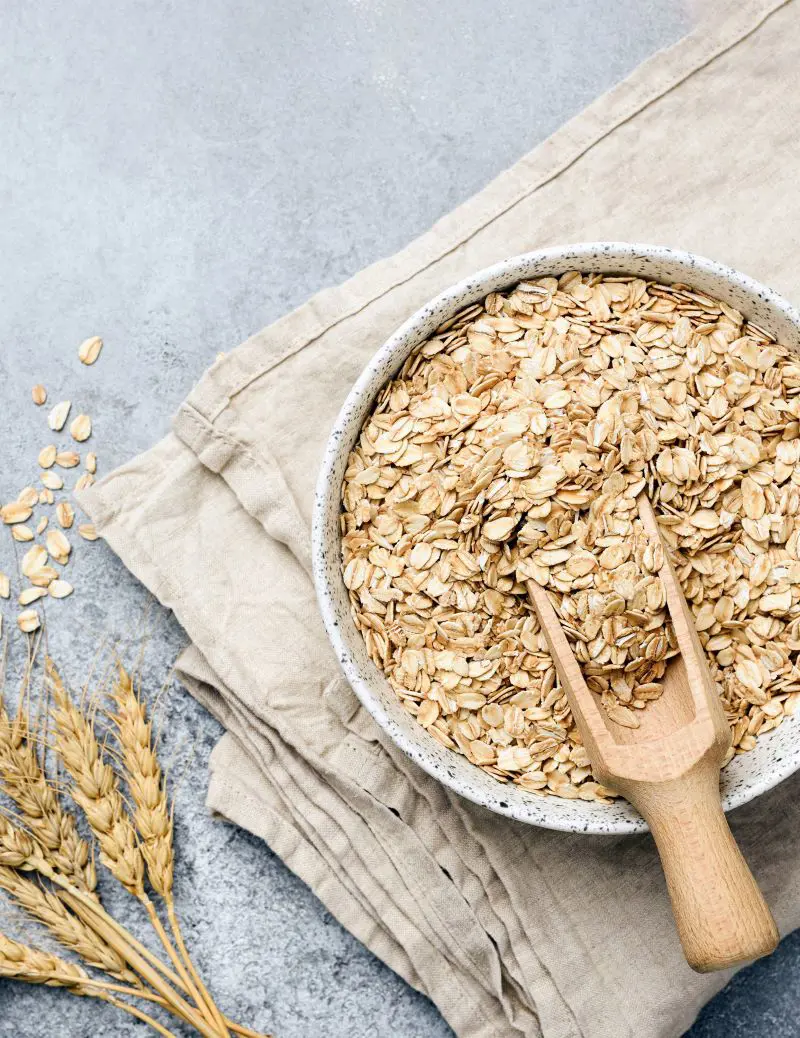
A popular hot breakfast option, oatmeal is rich in fiber, which promotes digestive health and can relieve symptoms like stomach pain and bloating. Its soluble fiber, notably beta-glucan, helps protect the stomach lining by reducing acid and irritation.
For the best outcomes, choose plain, unsweetened oatmeal and cook it with water or a low-fat milk alternative to avoid extra irritants. Additionally, oatmeal provides essential nutrients such as manganese, phosphorus, magnesium, and iron. It also contains antioxidants like avenanthramides, which may reduce inflammation and contribute to overall health.
4. Fresh Berries
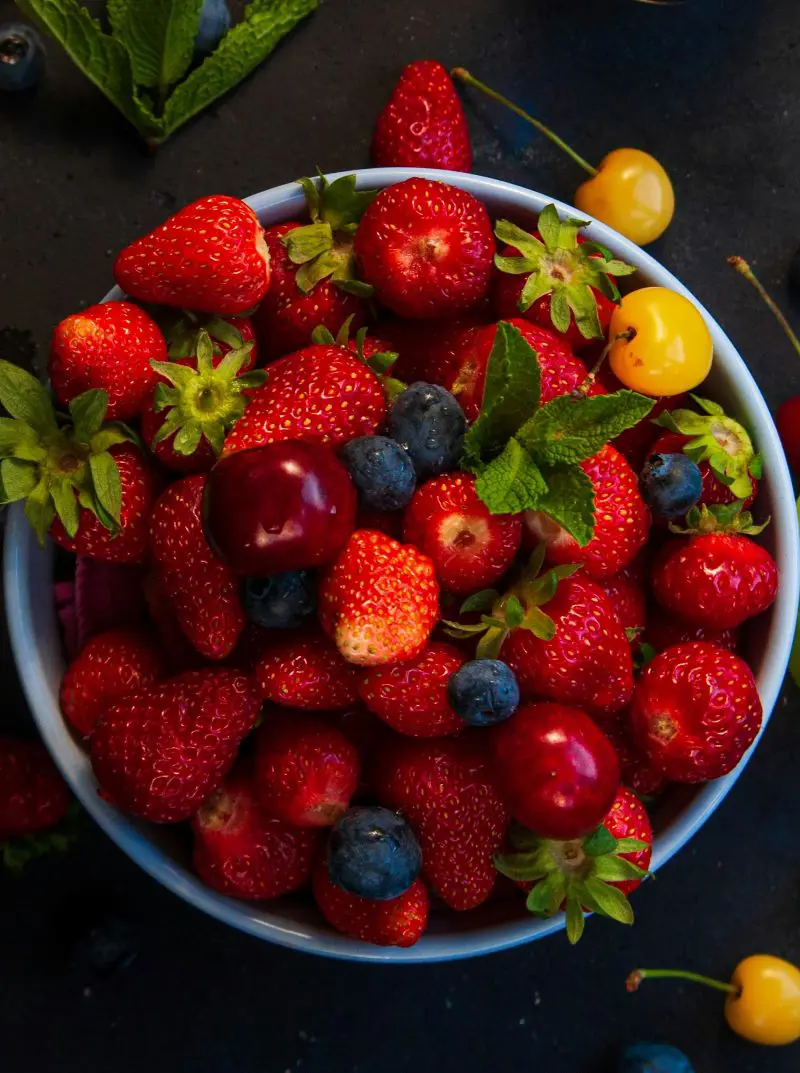
Packed with antioxidants and natural compounds, fresh berries offer several advantages for digestive health. Their high water content aids in hydration, which is crucial for calming an upset stomach. Berries such as blueberries, strawberries, and raspberries contain antioxidants with anti-inflammatory properties that may help ease stomach inflammation.
Moreover, they are gentle on the digestive system and provide natural sweetness without the added sugars commonly found in processed foods. For optimal benefits, enjoy fresh berries in moderation, whether added to yogurt at breakfast or as a refreshing snack.
5. Fish
Fatty fish like salmon, mackerel, and sardines are particularly beneficial for managing gastritis due to their high omega-3 fatty acid content, which has anti-inflammatory properties. These fish can help reduce inflammation in the stomach lining and aid in the healing process. They also provide essential nutrients such as vitamin D and selenium, which support overall digestive health.
For a gastritis-friendly diet, opt for baked, grilled, or steamed preparations rather than fried or heavily seasoned options. Consuming fatty fish 2-3 times a week can offer consistent anti-inflammatory benefits. Additionally, it is advisable to avoid fish with high mercury content, such as tuna.
6. Nuts
Nuts can be a beneficial part of a gastritis-friendly diet when consumed in moderation. They are rich in healthy fats, protein, and essential nutrients such as vitamin E, magnesium, and fiber, which can help reduce inflammation and support overall digestive health.
Almonds and walnuts are particularly beneficial due to their anti-inflammatory properties and their potential to soothe the stomach lining. For gastritis, choose raw or lightly roasted nuts without added salt or spices. Overeating nuts can lead to digestive discomfort, so stick to a small handful a day.
Pairing nuts with other gentle foods like yogurt or fruits can enhance their benefits and help ensure they do not irritate the stomach.
7. Melons
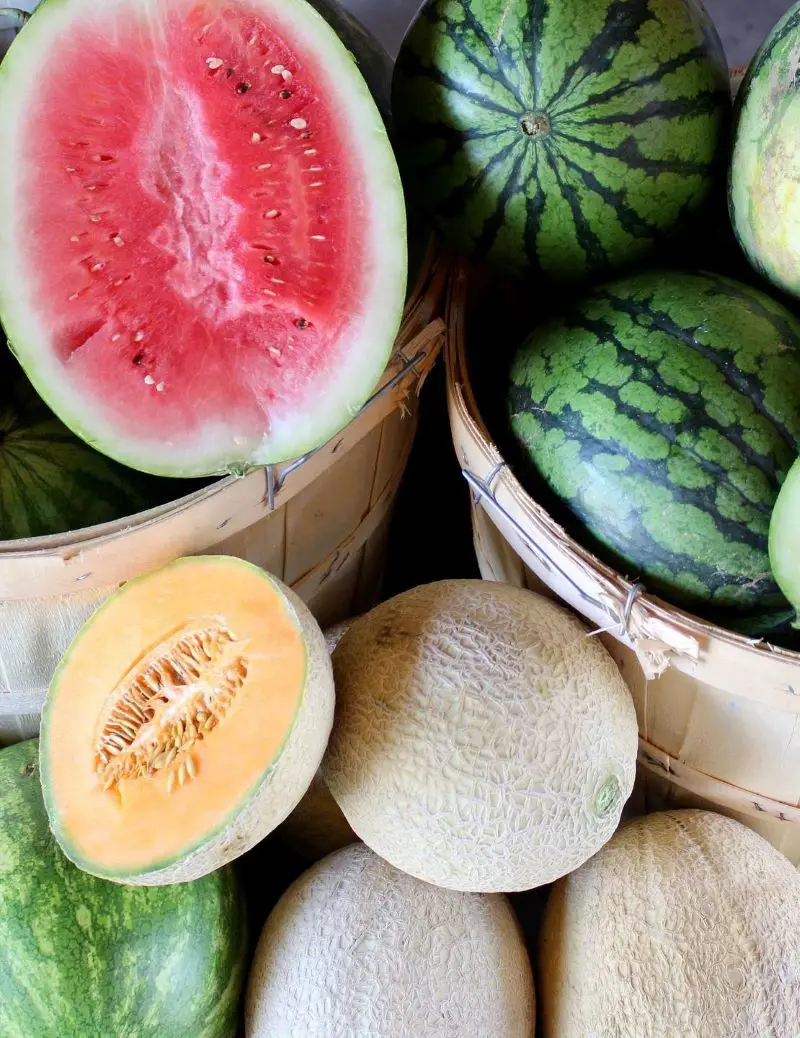
Melons, such as cantaloupe, honeydew, and watermelon, are low in acid and gentle on the stomach, making them suitable for people with gastritis. They are rich in vitamins A and C, and potassium, and have high water content, which helps soothe the stomach lining and aid in digestion.
The antioxidants and anti-inflammatory properties in melons may help reduce inflammation and support overall gut health. Eat melons fresh, in smoothies, or as part of fruit salads. It’s best to avoid adding acidic or spicy ingredients that could irritate the stomach. Their natural sweetness provides a soothing and nutritious snack option for those managing gastritis.
8. Broccoli
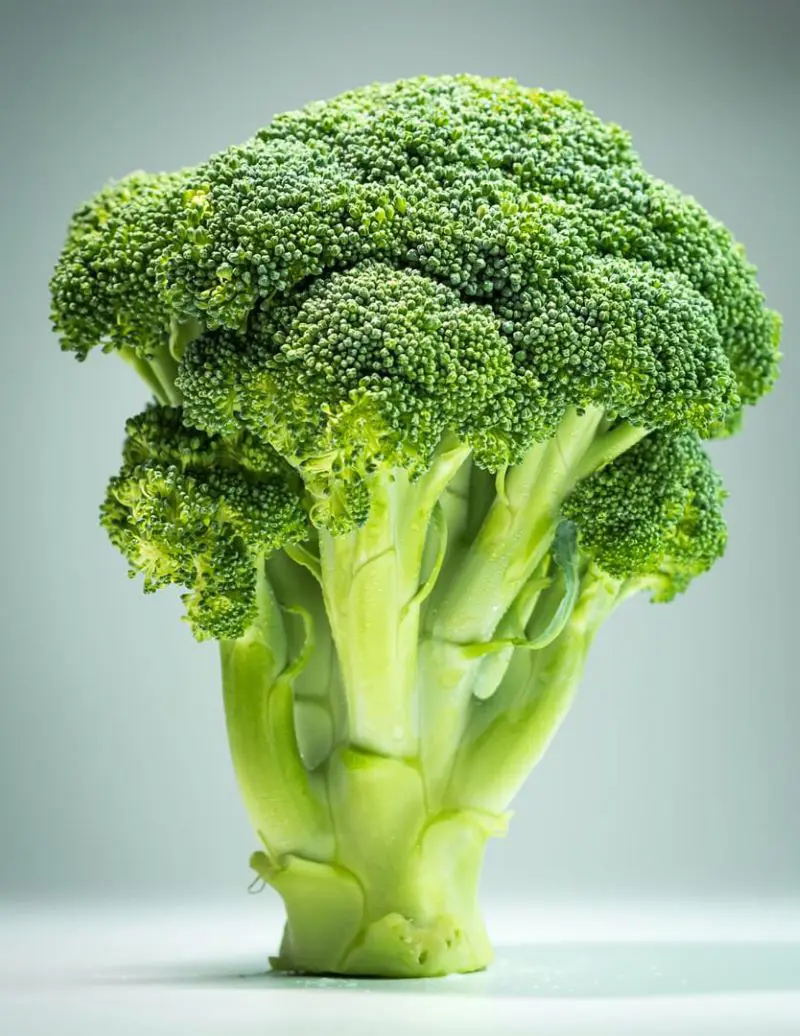
Broccoli is a nutrient-dense green vegetable that is rich in fiber, vitamins C and K, and antioxidants. These nutrients can help reduce inflammation and support digestive health. Its relatively low acidity makes it generally gentle on the stomach.
To enhance its digestibility and minimize potential irritation, it's best to cook broccoli by steaming or lightly sauteing rather than eating it raw or in excessive amounts. Incorporating broccoli into a well-rounded diet can support overall wellness and may aid in managing gastritis symptoms.
9. Spinach
This leafy green is packed with vitamins A, C, and K, as well as folate, iron, and antioxidants. Its rich fiber content supports digestive health and helps reduce inflammation. For individuals with gastritis, spinach can be beneficial due to its low acidity and soothing properties. It provides essential nutrients without exacerbating stomach inflammation when consumed in moderation.
It's best to eat spinach cooked rather than raw, as cooking breaks down some of the fibers that may cause discomfort. Steaming or sauteing spinach can make it easier on the digestive system. Enjoy spinach in soups, smoothies, or as a side dish for added versatility.
10. Tofu
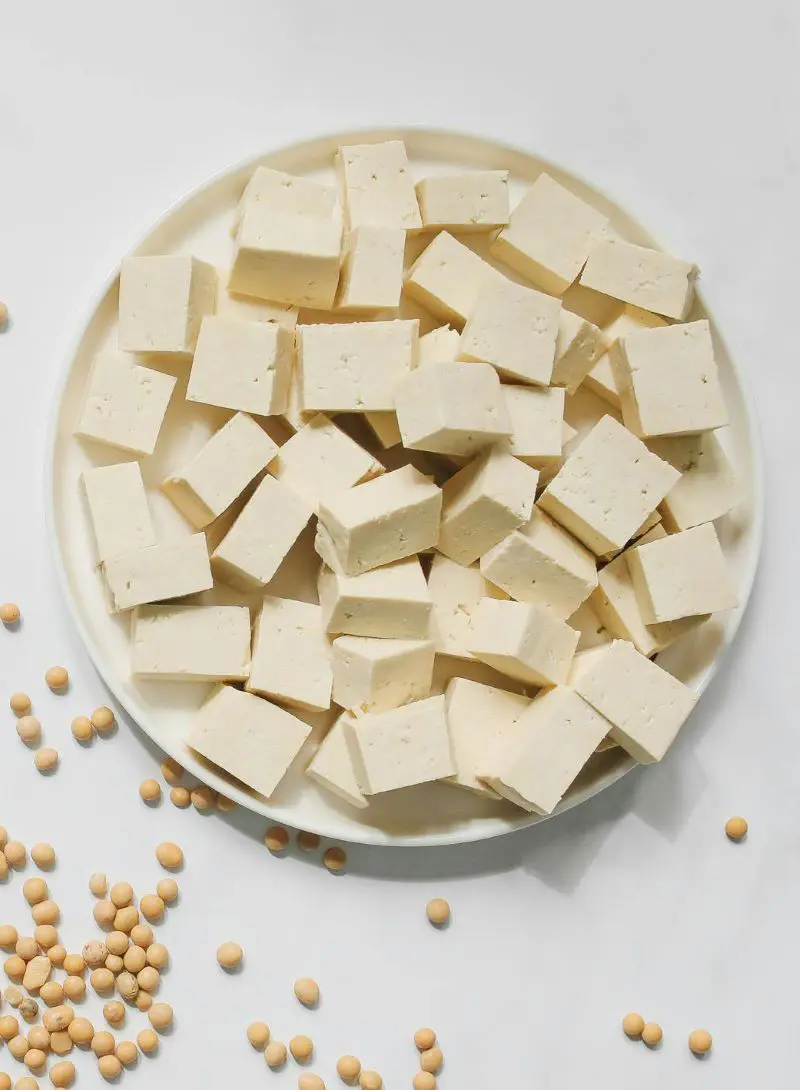
Tofu is a versatile, protein-rich food made from coagulated soy milk. It can be beneficial for managing gastritis because it is gentle on the stomach and provides a good source of plant-based protein, which may help reduce inflammation. Its bland flavor makes it easy to incorporate into a variety of dishes without irritating the digestive tract.
Tofu can be grilled, sauteed, steamed, or blended into soups and smoothies. For those with gastritis, opting for softer, steamed, or lightly cooked tofu may be preferable to minimize potential irritation. It is also important to prepare tofu with gentle, non-irritating ingredients to maintain its digestive benefits.
11. Broths and Clear Soups
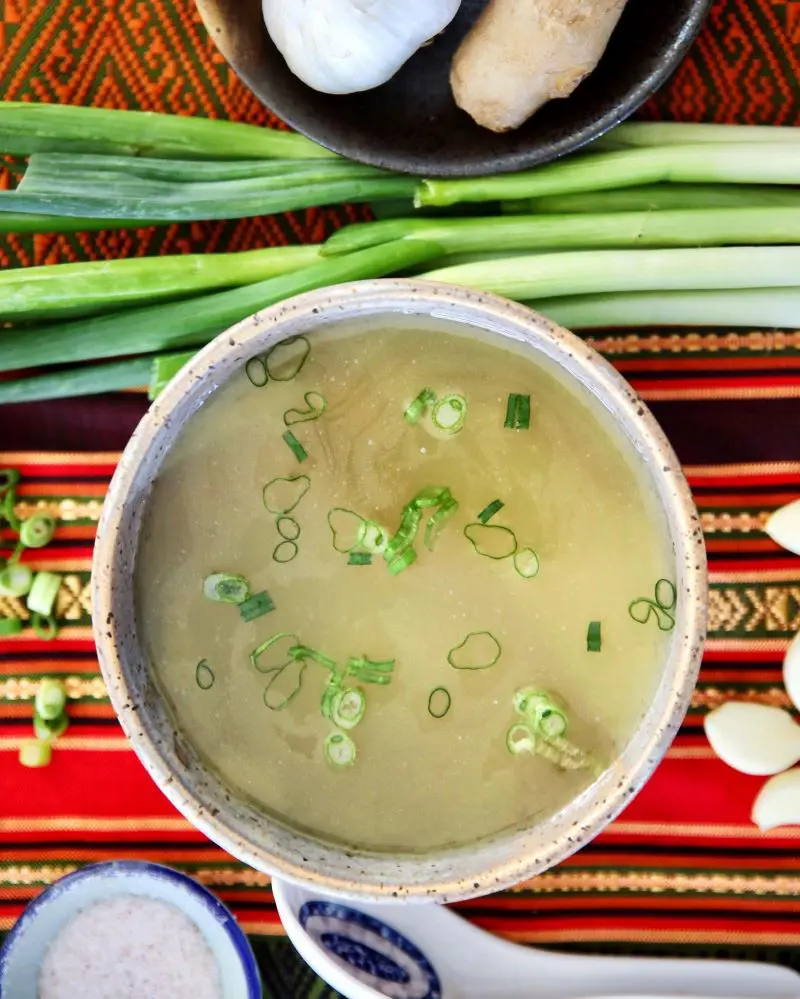
Broths and clear soups provide hydration and essential nutrients without irritating the stomach lining. Chicken or vegetable broths are particularly gentle on the stomach, as they are typically low in fat and free from spices and acidic ingredients that can exacerbate gastritis symptoms.
Clear soups made from these broths, with simple ingredients like carrots and celery, are also beneficial. It is important to avoid broths and soups with high levels of sodium, garlic, or onion, as these can aggravate symptoms. Opting for homemade broths or low-sodium store-bought versions ensures they align with a gastritis-friendly diet.
12. Whole Grains
Besides their high fiber content, which aids digestion and supports overall gut health, whole grains are rich in B vitamins, such as B6 and folate, which are important for energy metabolism and maintaining a healthy digestive system. The antioxidants in whole grains help combat oxidative stress and inflammation, which can benefit gastric health.
Opt for gentle whole grains like oatmeal, brown rice, and quinoa, as they are less likely to irritate the stomach compared to refined grains. It is advisable to avoid whole grains with added sugars or heavy spices to prevent exacerbating gastritis symptoms.
13. Skinless Poultry

Skinless poultry, such as chicken or turkey breast, is ideal for managing gastritis due to its lean nature and low-fat content. Boiling or poaching keeps it tender and easy on the stomach. Baking at a moderate temperature with mild herbs can add flavor without causing irritation. Grilling is fine if you avoid spicy marinades and excessive charring.
Slow cooking in a mild broth with non-acidic vegetables provides a soothing option. Incorporating skinless poultry into soups or stews with gentle ingredients is also beneficial. Avoid spicy, acidic, or heavily seasoned ingredients, and ensure thorough cooking to ensure food safety. Moderation is key to preventing overeating and excess stomach acid production.
14. Squash
Squash is generally easy to digest and has a mild flavor that is gentle on the stomach lining. It is rich in vitamins (such as A and C), minerals (like potassium and magnesium), and antioxidants, all of which support overall health. Varieties such as butternut, acorn, and zucchini are good options.
To ensure it remains easy on the stomach, cook squash by steaming, baking, or boiling it until soft. Using minimal and mild seasonings can help avoid potential irritation. Including squash in your diet can provide essential nutrients while being gentle on the stomach, making it a suitable choice for those with gastritis.
15. Eggs

Eggs are nutritious and gentle on the stomach, making them a suitable option for those with gastritis when prepared simply. They are a good source of high-quality protein and essential nutrients like vitamins B12, D, and choline, and are generally easy to digest. Opting for boiled, poached, or scrambled eggs without added fats or spices is advisable.
Fried eggs can be more difficult to digest due to the additional fats and oils used in the cooking process. Combining eggs with bland foods such as toast or rice can help create a balanced meal and may be easier on the stomach. It’s best to consume eggs in moderate amounts to avoid overloading the digestive system.
16. Papaya
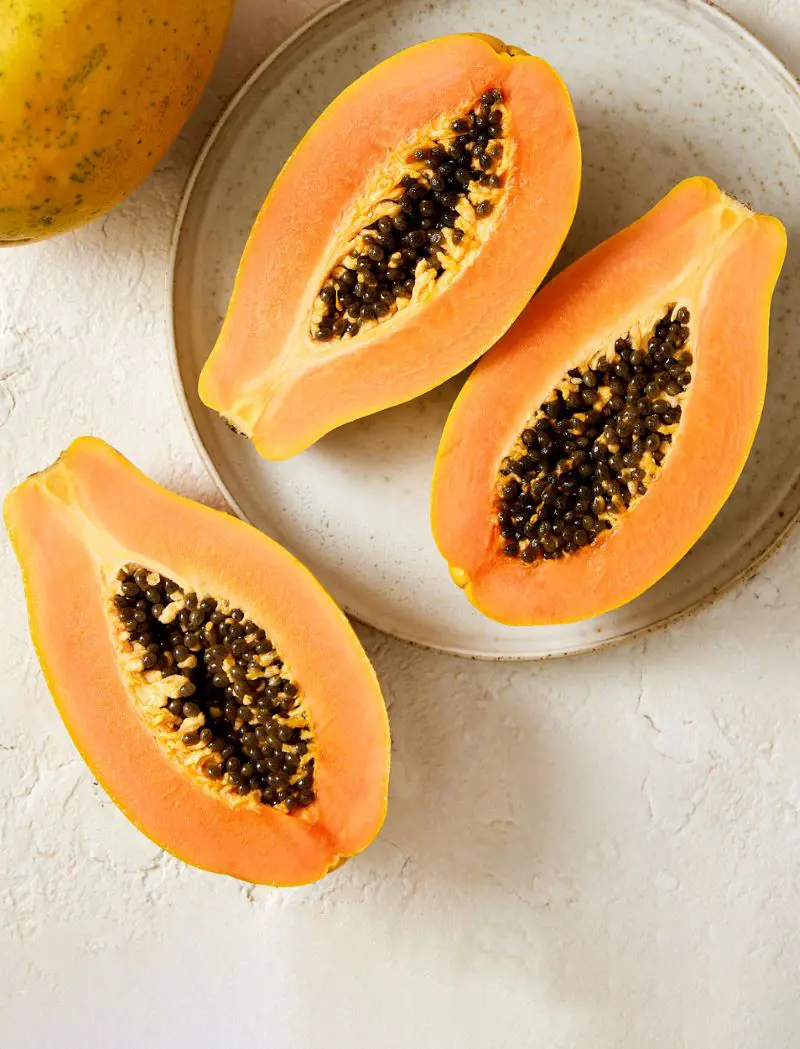
Papaya is a tropical fruit packed with antioxidants and flavonoids, featuring natural digestive enzymes like papain and bromelain. These enzymes support digestion and help reduce inflammation, providing relief to the stomach lining and promoting healing.
The fruit's high fiber content also aids in regulating bowel movements, which can help alleviate gastritis symptoms. For the best results, consume ripe, fresh papaya. A small bowl of fresh papaya cubes or a papaya smoothie can be particularly effective. Avoid unripe papaya, as it can be harder on the stomach and may exacerbate symptoms.
17. Carrots
Carrots are rich in beta-carotene, which helps repair and maintain the stomach lining, and high in fiber, which aids digestion. They also contain vitamins A, C, and K, as well as potassium and antioxidants, all of which support overall digestive health. To relieve gastritis, consume carrots in easily digestible forms such as steamed, boiled, or pureed.
Carrot juice is also effective; its alkalizing nature can help neutralize stomach acid and reduce inflammation. Including carrots in soups or smoothies can provide additional nutrients. While raw carrots are nutritious, they might be harder to digest for some individuals with gastritis and could potentially irritate the stomach lining.
18. Honey

Honey has a soothing effect on the stomach lining and may help reduce irritation. It contains antioxidants and anti-inflammatory compounds that can aid in reducing inflammation in the stomach. Additionally, honey may support digestion and promote overall gut health.
It’s best to use honey in small amounts to avoid excessive sugar intake, which could potentially aggravate symptoms. Opt for raw, unprocessed honey to maximize its beneficial properties. Individual responses to honey can vary, so it’s important to monitor your symptoms. Always consult with a healthcare provider to ensure honey is appropriate for your specific dietary needs and condition.
19. Cabbage
Cabbage, the modest champion of vegetables, emerges with a promise of relief for those dealing with gastritis. Imagine a leafy green savior, filled with antioxidants and anti-inflammatory properties, ready to calm the burning discomfort in your stomach.
When you gently cook it—by steaming, boiling, or sauteing—cabbage becomes a soft, soothing ally for your digestive system. It’s not just its rich supply of vitamins (such as vitamins C and K) and minerals (like potassium and magnesium) that stands out, but also its capacity to reduce inflammation and alleviate irritation.
20. Gentle Herbal Tea

Gentle herbal teas can be a soothing and beneficial addition for managing gastritis. These teas are caffeine-free and possess properties that can help alleviate symptoms and promote digestive health. Consider the following options:
- Chamomile Tea: Chamomile contains compounds with anti-inflammatory properties that soothe the stomach lining. It helps relax the digestive tract, reducing discomfort and promoting healing.
- Ginger Tea: Ginger is known for its ability to enhance digestion and relieve nausea, making it ideal for calming an irritated stomach. It helps reduce inflammation in the stomach lining.
- Peppermint Tea: Peppermint can help ease digestive discomfort, although it should be used cautiously as it may aggravate symptoms in some individuals with gastritis due to its potential to relax the lower esophageal sphincter.
- Licorice Root Tea: Contains glycyrrhizin, which may help protect the stomach lining and reduce symptoms. However, it should be consumed in moderation to avoid potential side effects like increased blood pressure.
Gastritis Foods To Avoid
When managing gastritis, it's important to avoid foods that can irritate the stomach lining and exacerbate symptoms. Here are some common foods and beverages to avoid:
- Spicy Foods: Spicy foods, including chili peppers and hot sauces, can irritate the stomach lining and exacerbate gastritis symptoms.
- Acidic Foods: Citrus fruits (like oranges and lemons) and tomatoes can increase stomach acid and irritate the stomach lining.
- Fried and Greasy Foods: Foods high in fat, like fried chicken and fast food, can be hard on the stomach.
- Caffeinated Beverages: Coffee, tea, and some sodas can stimulate stomach acid production and potentially aggravate gastritis.
- Alcohol: Alcohol can irritate the stomach lining and increase acid production.
- Carbonated Drinks: Soda and sparkling water can cause bloating and discomfort.
- Mint: Peppermint and spearmint can relax the lower esophageal sphincter, potentially leading to acid reflux and discomfort.
- Dairy Products: Some people find that milk, cheese, and other dairy products can aggravate their symptoms, especially if they have lactose intolerance.
- Processed Foods: Processed foods often contain preservatives, artificial flavorings, and other additives that can irritate the stomach.
- Sugary Foods: High sugar intake can contribute to digestive issues and potentially worsen gastritis symptoms.
Recent posts
Nutrition
Nutrition
Licorice Root: Benefits And Uses
You can spell it liquorice or licorice; this herb or root has been in use for centuries in most medicinal applications, as a natural sweetener and to enhance flavors. Regarding its origins, it comes from the root of the "Glycyrrhiza galbre" plant and...
Nutrition
Is Salmon Good For You? Nutritional Facts and Benefits
Salmon fish is a staple diet throughout the world, popular as a super food for its nutrients. Whether savored in sushi, poached, grilled, roasted, or pan-fried, salmon offers minerals and vitamins that contribute to healthy bodily functions. In addit...
Nutrition
25 Smoked Salmon Recipes That You Will Enjoy
Salmon is a silver-colored fish that is loaded with many nutrients, vitamins, and omega-3 fatty acids. Smoked Salmon is better for improving your health and reducing the risk of cancer, heart-related diseases, fights inflammation, reduces anxiety and...
Nutrition
Are Sausages Healthy? Nutrition And Health Benefits
Sausages are tasty in an addictive way, making them one of the most popular foods worldwide. You may have enjoyed this convenient food often, whether on a bun with mustard or grilled on a barbecue, the simple preparation methods are what makes its co...
Nutrition
20 Vegetables That Are Rich In Iron
Iron is essential for our bodies to function well. When we don't get enough iron, we often feel weak and tired. It's important to address iron deficiency early by eating the right foods. Fortunately, many vegetables are rich in iron and can help prev...
Nutrition
15 Cauliflower Nutrition Facts And Health Benefits
Cauliflower, a cruciferous vegetable, resembles a white variation of its relative, broccoli. Like broccoli, it has closely bunched florets attached to a thick core, often surrounded by a few leaves. While white is the most common color, cauliflower i...


